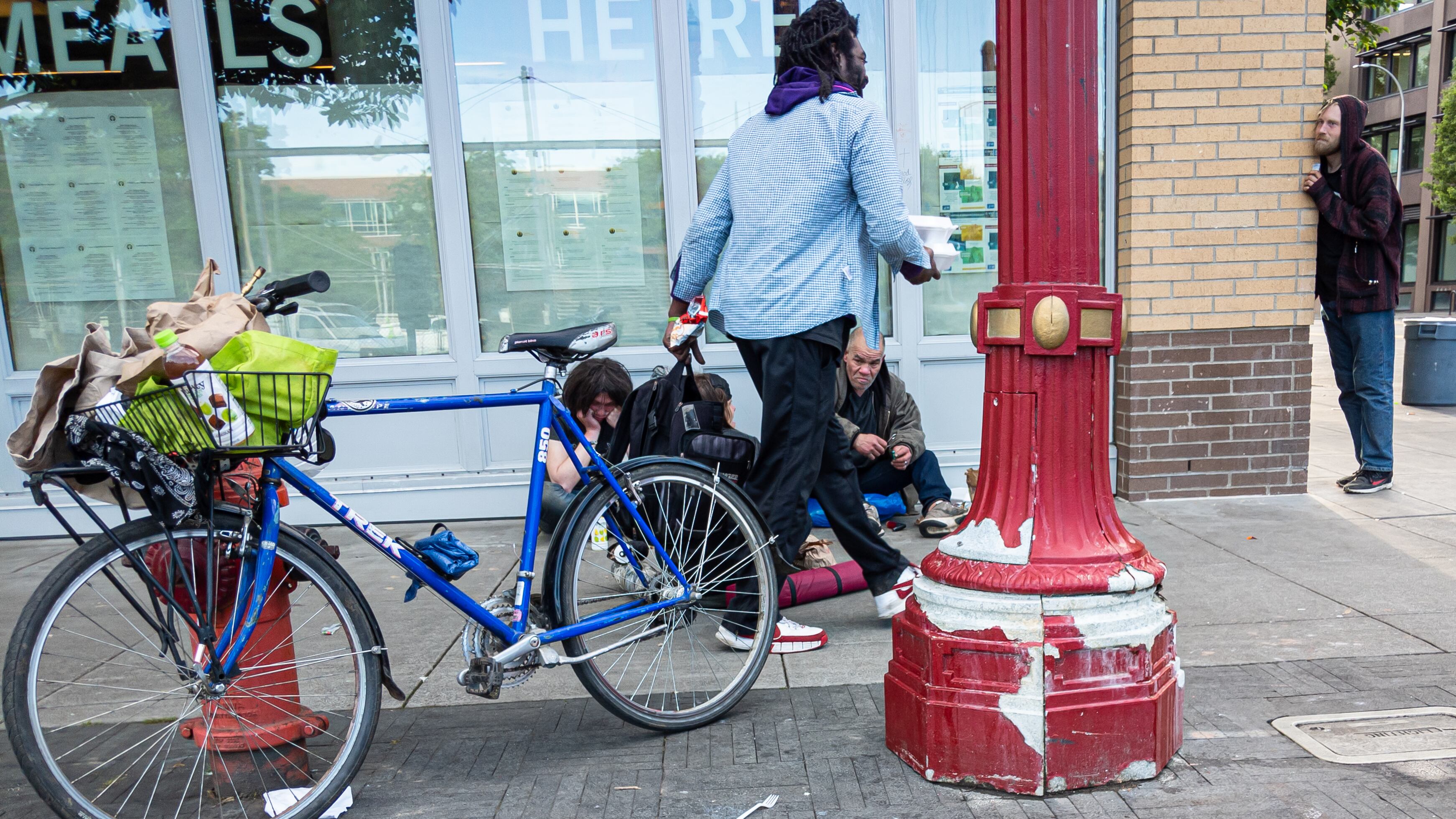In a Sept. 29 letter to Mayor Ted Wheeler and City Commissioner Dan Ryan, Multnomah County Chair Deborah Kafoury rejected the city’s request that the county fund the city’s safe rest villages after 2024, and expressed surprise that the villages might last that long.
This afternoon, Portland city officials are expected to announce the first three locations for the city’s safe rest villages, a plan hatched in springtime and which has since moved at a crawl and been dogged by questions about how the city and county intend to work together to erect and maintain these sites.
The Wednesday letter, obtained by WW, offers a glimpse into the ongoing struggle over who will assume responsibility for these sites, which the city has promised will provide individual shelters, case management, and basic hygiene and behavioral health services.
But in that Wednesday letter, obtained by WW, Kafoury replied to the city’s request that the county fund the safe rest villages after the city’s American Rescue Plan dollars expire in 2024.
Kafoury responded simply: No.
“This is not a commitment that the county can make at this time,” Kafoury wrote. “From my conversations with both of you, it was my understanding that the safe rest villages would be a short-term strategy in response to the impact that the COVID-19 pandemic has had on people experiencing homelessness in our community.”
She added: “I would appreciate the opportunity to further discuss the City’s long-term plans for the SRVs. I should also note that, like City Council, current county boards cannot bind future boards to funding commitments.”
Ryan and Wheeler sent a letter outlining their expectations of the county’s support on Aug. 10. That letter was shared with WW. In it, Ryan and Wheeler listed the city’s responsibilities in building and maintaining the villages: selecting sites, fronting the building costs, and providing hygiene, sanitation and security funds through 2024. The city wrote that funds for those services “will be disbursed through the American Rescue Plan through 2024, after which time they will be provided by funds from the Metro [supportive housing services] measure”—asserting that the county would take over funding those services after 2024.
Kafoury’s letter makes clear she will not tap into money from the homeless services tax measure Portland-area voters passed in 2020.
That letter reflects longtime fissures between the city and county regarding the sites. When Wheeler aide Sam Adams first told WW about the villages back in May, Kafoury called it a “back of the napkin sales pitch.” Ten days later, Ryan and Kafoury sent out a joint statement pledging they would work in tandem to create the sites.
It’s been unclear since the genesis of the safe rest villages plan in May whether the county or city would assume responsibility for funding the wraparound behavioral health services that are promised at the villages.
In the city’s Aug. 10 letter to the chair, Ryan and Wheeler listed their other primary expectation of the county’s responsibilities for the villages: providing behavioral and mental health services and case management.
Ryan’s office met with the county last week to discuss such topics. It’s still not clear who is funding what.
In Wednesday’s letter, Kafoury said she had already pledged dollars from the Metro measure to supply case management and housing services to occupants of the safe rest villages. But no specific dollar figure was cited.
Kafoury did allocate $2.5 million of the $52 million the county expects to get from the Metro measure to expand behavioral health and outreach teams across the city. But that funding is not specific to the villages.
Denis Theriault, spokesman for the Joint Office of Homeless Services, tells WW: “The safe rest villages will be integrated into our much larger homelessness response system, which guides thousands of people from homelessness to housing every year. As part of that system, the villages will benefit from our rapid expansion of behavioral health, case management and housing navigation services funded by Metro SHS revenue.” (The county is also using a small amount of its ARPA dollars to fund the expanded outreach teams.)
Exactly how the new behavioral health services will work on these sites will be worked out as Commissioner Ryan’s office develops the programming with the Joint Office of Homeless Services, Theriault says.
In the letter, Kafoury encouraged the city to work with the joint office to coordinate using those services at the sites. It does not appear, however, that the county pledged specific funding for the teams to work at the safe rest villages, but instead is encouraging the city to work within existing county funding to use those services at the villages.
If contractors for the sites have been selected, they have not been announced publicly. Last week, the joint office and Ryan’s office told WW that contractors and operators for the sites were still being decided on.

